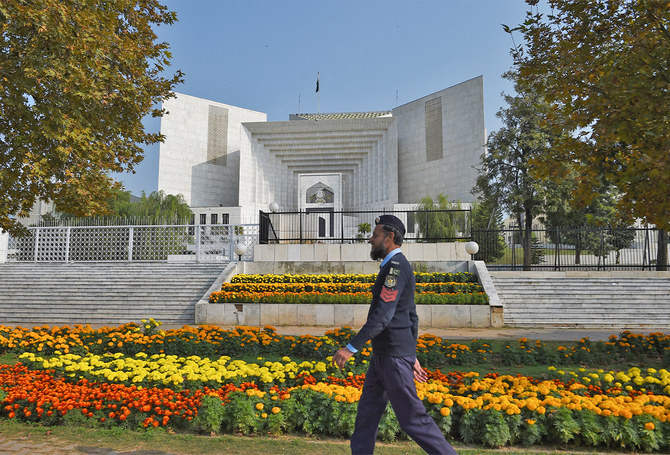
Pakistan Tehreek-e-Insaf (PTI) on Monday moved the Supreme Court (SC) against trying civilians in military courts, calling the decision a "clear violation" of the constitutional guarantees of due process and fair trial.
"Such trials are highly deprecated internationally and widely considered as falling short of providing fair trial," the petition stated.
It stated, "They constitute a violation of Pakistan’s obligations under the International Covenant on Civil and Political Rights (ICCPR) which has been ratified by the country.”
It added, “Trial of thousands of workers of a political party (or a political leader) through such courts is unheard of in the history of this country.
“The workers and supporters now sought to be tried through military courts are not part of any terrorist organisation and pose no threat to national security. Thus, it is contrary to the Constitution to try civilian protesters thorough military courts.”
The party also challenged the deployment of the armed forces under Article 245 of the Constitution in Punjab, Khyber-Pakhtunkhwa (K-P), and the Islamabad Capital Territory (ICT).
The petition filed by PTI Additional Secretary General Omar Ayub Khan stated that the scope of Article 245 of the Constitution was limited in nature, and also limited to circumstances where the civil power of the state may be overwhelmed for any reason.
The petition added that the federal government’s requisition of the armed forces in order to quell and repress their political opponents purely to disable them from exercising their constitutional rights was a gross violation of Article 17 of the Constitution.
“The police and civilian forces were fully capable of facilitating and allowing the public to carry out their protest. In such a situation, when the civil forces were not overawed, there is no justification for requisition of the armed forces,” the petition maintained.
The PTI stated in its petition that protests against an unlawful action – arrest of PTI chief Imran Khan – was now being used as a pretext in order to launch a crackdown against the largest political party in Pakistan and to dismantle it through detention and fear.
“Even if the invocation of Article 245 was justified, its continuation is not as the intensity of the protests has lessened and it is merely being used as an excuse to launch massive crackdowns in their worst form against the leader, workers and supporters of PTI,” the petition stated. “The armed forces are acting in suppression of civil power rather than aid of civil power.
“The current political propaganda campaign of labelling PTI as a ‘terrorist organisation’ is also another tactic of the respondents to deny the holding of elections and eventually oust Imran and PTI from the electoral process.”
The petition requested the apex court to declare “the actions taken pursuant to Article 245 in terms of brutal crackdown of PTI and its supporters and decision to try civilians through military courts as unconstitutional and unlawful”.
Following PTI Chairman and deposed premier Imran Khan’s arrest on May 9 in connection with a corruption case, the country saw violent protests targeting sensitive state and military installations.
Following the development, on May 10, army troops were called out in Punjab and K-P as authorities sought to quell the deadly unrest.
The government has since pursued an aggressive crackdown against the party leadership and others alleged of being involved in the vandalism and causing public unrest.
The ruling coalition has also said that protestors will be tried under the Army Act in military courts. The Army Act of 1952 established military courts primarily to try members of the military or enemies of the state.
Civilians can only be tried there under a federal government order.














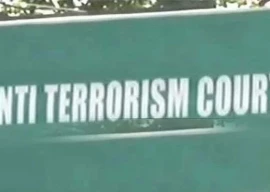
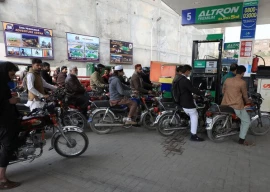

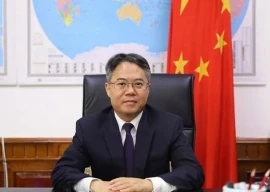


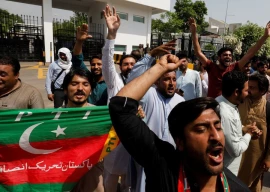



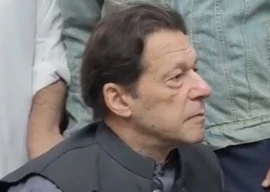
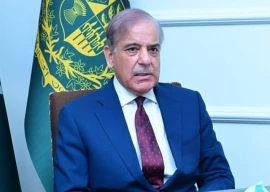
1715689419-0/Screenshot-(1019)1715689419-0-270x192.webp)



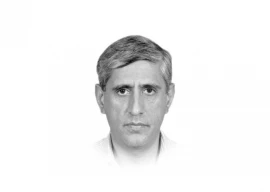

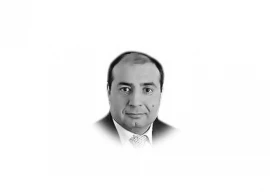


COMMENTS
Comments are moderated and generally will be posted if they are on-topic and not abusive.
For more information, please see our Comments FAQ